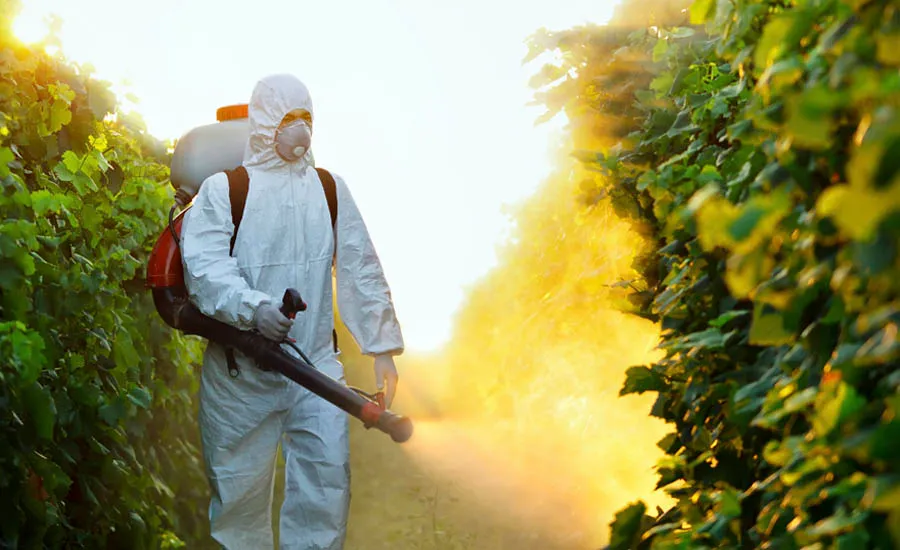ISLAMABAD, March 15: A comprehensive global study has highlighted the severe and wide-reaching negative impacts of pesticides on biodiversity, contributing significantly to the ongoing biodiversity crisis.
The study suggests that pesticides are not only harmful to target pests but also have pervasive negative impacts across all organisms, threatening ecosystem integrity and biodiversity.
This is a chief cause of the killing the natural biodiversity in biological circle of all livelihood, from insects to the cattle, animals and humans.
The study shows around 800 small and large species are hit by the huge use of pesticides on farm productions. There were 471 pesticides studied in this detailed research work.
Conducted by an international research team, including experts from the UK Centre for Ecology & Hydrology (UKCEH) and the University of Sussex, the study is the first to assess the effects of pesticides across a broad range of species in both land and water habitats.
Key Findings of the Study:
-
Widespread Negative Impacts:
- Over 800 species, including plants, animals, fungi, microbes, and insects, have been shown to suffer from the unintended consequences of pesticide use. These effects include:
- Disrupted growth rates, reproductive success, and behavior (e.g., hunting, foraging, mating).
- Damage to cells and metabolism, leading to premature death and population declines.
- Over 800 species, including plants, animals, fungi, microbes, and insects, have been shown to suffer from the unintended consequences of pesticide use. These effects include:
-
Pesticides Impact a range of species:
- Unlike prior studies that focused on specific species or habitats, this research considered the whole spectrum of species found in natural environments, assessing 471 different pesticide types, including insecticides, fungicides, and herbicides.
-
Global Consequences for Ecosystems:
- The study found that pesticides are not only harmful to target pests but also have pervasive negative impacts across all organisms, threatening ecosystem integrity and biodiversity.
Read More: Sindh Govt Introduces Climate Smart tech for Agriculture
Why Pesticides Are Used and the Need for Alternatives:
- Necessity vs. Harm:
- While pesticides are essential for global food production and farmer livelihoods, the research underscores the urgent need to reduce their use to protect biodiversity.
- Alternative Approaches:
- Regenerative agriculture, Integrated Pest Management (IPM), and Sustainable Farming Incentives (like those in the UK) offer solutions to reduce pesticide use. These practices include:
- Supporting natural pest predators by planting wildflowers and beetle banks.
- Adjusting planting schedules and crop rotation to break pest life cycles.
- For gardeners, natural pest control options such as introducing nematodes, ladybirds, or mites can be helpful.
- Regenerative agriculture, Integrated Pest Management (IPM), and Sustainable Farming Incentives (like those in the UK) offer solutions to reduce pesticide use. These practices include:
Policy and Future Directions:
-
Policy Measures:
- Governments can support bottom-up initiatives by farmers and policies like Sustainable Farming Incentives to reduce pesticide dependency and protect ecosystems.
-
Innovative Solutions:
- The future could see AI-powered pest control, with high-tech monitoring of both pests and their natural predators. This would allow farmers to use precise pesticide application, minimizing impact on non-target species.
-
Monitoring and Early Warning Systems:
- Ongoing monitoring efforts by UKCEH, in collaboration with Defra, use honeybee colonies as a tool to monitor pesticide risks, acting as an early warning system for emerging problems.
Also Read: How Harmful Are Microplastics to Human Health?
The study underscores the urgent need for a balanced approach in agricultural practices.
One that takes into account the environmental and ecological costs of pesticide use while still meeting the demands of global food production.
By embracing more sustainable agricultural practices and considering alternative pest control methods, we can reduce the harmful effects of pesticides on biodiversity and help mitigate the ongoing biodiversity crisis.
